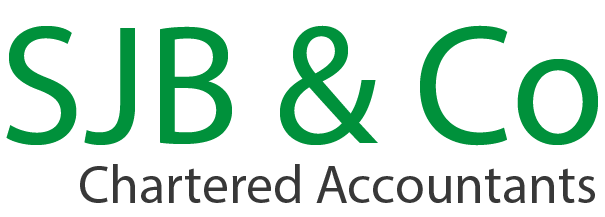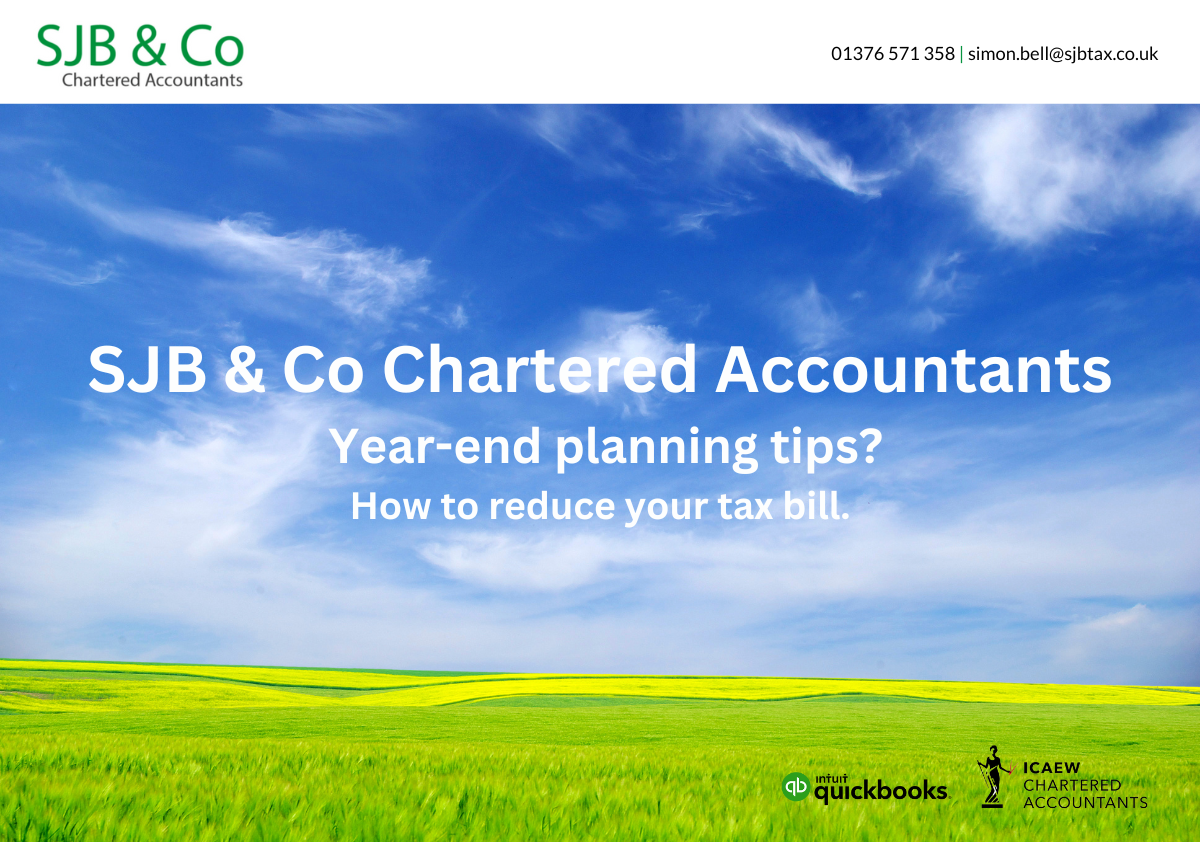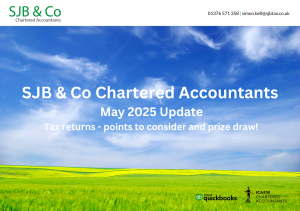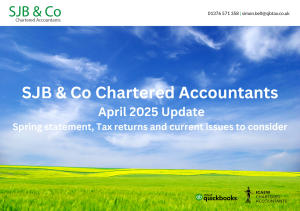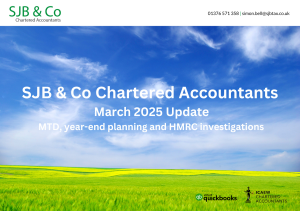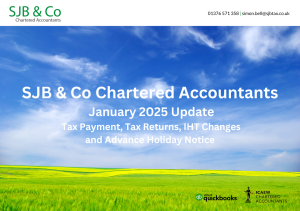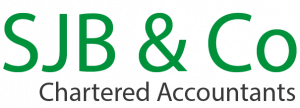|
Year-end tax planning tips? |
As the end of the 2023/24 tax year approaches, it is prudent to review your tax affairs and consider whether you can reduce your tax bill by taking advantage of allowances and exemptions that would otherwise be wasted.
Key dates
For individuals, the 2023/24 tax year ends on 5 April 2024.You may be able to reduce your 2023/24 tax bill by utilising allowances and exemptions by this date.
This note highlights a few year-end tax planning opportunities.
Make use of the dividend allowance
All taxpayers, regardless of the rate at which they pay tax, receive a dividend allowance. This is in additional to any personal and savings allowances to which you might be entitled. For 2023/24, the dividend allowance is set at £1,000. It will fall to £500 for 2024/25.
If you have a personal or family company and you have sufficient retained profits, consider paying dividends before 6 April 2024 to use up shareholders’ dividend allowances. This will enable profits to be extracted from the company tax-free.
If cashflow is tight, you can credit the dividend to your director’s account, withdrawing it when you have the funds available.
Take advantage of the trivial benefits exemption
The trivial benefits exemptions allows employers to provide employees with certain tax-free benefits costing no more than £50 each, capped at £300 per tax year for directors of close companies. The benefits must not be in the form of cash or a cash voucher, nor can they be a reward for services or something to which the employee is contractually entitled.
If your personal or family company has not yet made use of the trivial benefits exemption, consider providing trivial benefits up to the limit before the end of the tax year, The benefit can be of your choosing, such as a meal out, a bottle of wine, books or an item of clothing, as long as the cost is £50 or less per benefit.
Repay company-provided petrol
If you have a company car and your employer pays for all your fuel for private travel, consider whether this is a worthwhile benefit. You will be charged on the benefit of free fuel. The taxable amount for 2023/24 is the appropriate percentage used to calculate your car benefit charge multiplied by £27,800. If the list price of your car is less than £27,800, you will pay more tax on the provision of fuel for private journeys than you do on the benefit of your company car.
The fuel benefit will not be worthwhile if the cost of your private fuel is less than the tax you pay on the benefit. Where this is the case, consider making good the cost of fuel provided for private use. This can be done by using the advisory fuel rates published by HMRC. To cancel out the fuel benefit, you must repay the private fuel cost by 6 July 2024 (for 2023-24) if the benefit is reported on your P11D, and on or before 31 May 2024 if it is payrolled.
There is no fuel benefit charge if your employer meets the cost of private journeys in an electric company car.
Claim business mileage
If you use your own car for business and your employer pays a mileage allowance, make sure you have submitted a claim for all business mileage in the tax year. There is no tax to pay if the amount paid by your employer does not exceed the approved amount. This is simply your business mileage in the tax year multiplied by the approved amount. For cars and vans, this is 45p per mile for the first 10,000 business miles in the tax year and 25p per mile for any subsequent business miles. If the amount paid by your employer is less than the approved amount or your employer does not pay mileage allowances, you can claim tax relief for the shortfall.
Use your personal allowance
If your income is below your personal allowance (£12,570 for 2023-24), consider making further payments (such as salary or bonus payments from your personal or family company) or advancing income (for example, bringing work forward if you are a sole trader) to ensure the allowance is not wasted.
If you are married or in a civil partnership and you will not use all your 2023/24 personal allowance, consider whether you can claim the marriage allowance to transfer £1,260 of your personal allowance to your spouse or civil partner. You will be eligible as long as your spouse or civil partner does not pay tax at the higher or additional rate. As a couple, this will save you up to £252.
Consider making capital disposals
If you are planning on making a disposal which will realise a capital gain and you have yet to use your annual exempt amount for 2023/24, set at £6,000, consider making the disposal before 6 April 2024. You can also make use of the no gain/no loss rule to transfer an asset or a share in an asset to your spouse or civil partner and therefore use any unused amount of their annual exempt amount. Remember, the annual exempt amount falls to £3,000 for 2024/25, so waiting until after 5 April 2024 may increase the capital gains tax that is payable.
Make pension contributions
Consider whether it is advantageous to make pension contributions to use your annual allowance for 2023/24 and also any unused allowances from 2020/21 and later years. If you have a personal or family company, making employer contributions can be tax efficient.
Use your ISA allowance
Consider contributing to an ISA (Individual Savings Account) before the end of the tax year. Up to £20,000 can be paid in to a cash or stocks and shares ISA each year. Once money is in an ISA, dividends, interest and capital gains are tax free.
Please feel free to forward this newsletter to any colleagues or friends who may be interested in it.
For more information or to discuss any issues raised above please contact Simon Bell by phone on 01376 571358 or email [email protected]
This article is written in general terms and therefore cannot be relied on to cover specific situations; applications of the principles set out will depend on the particular circumstances involved and it is recommended that you take professional advice before acting or refraining from acting on any material in the newsletter.
